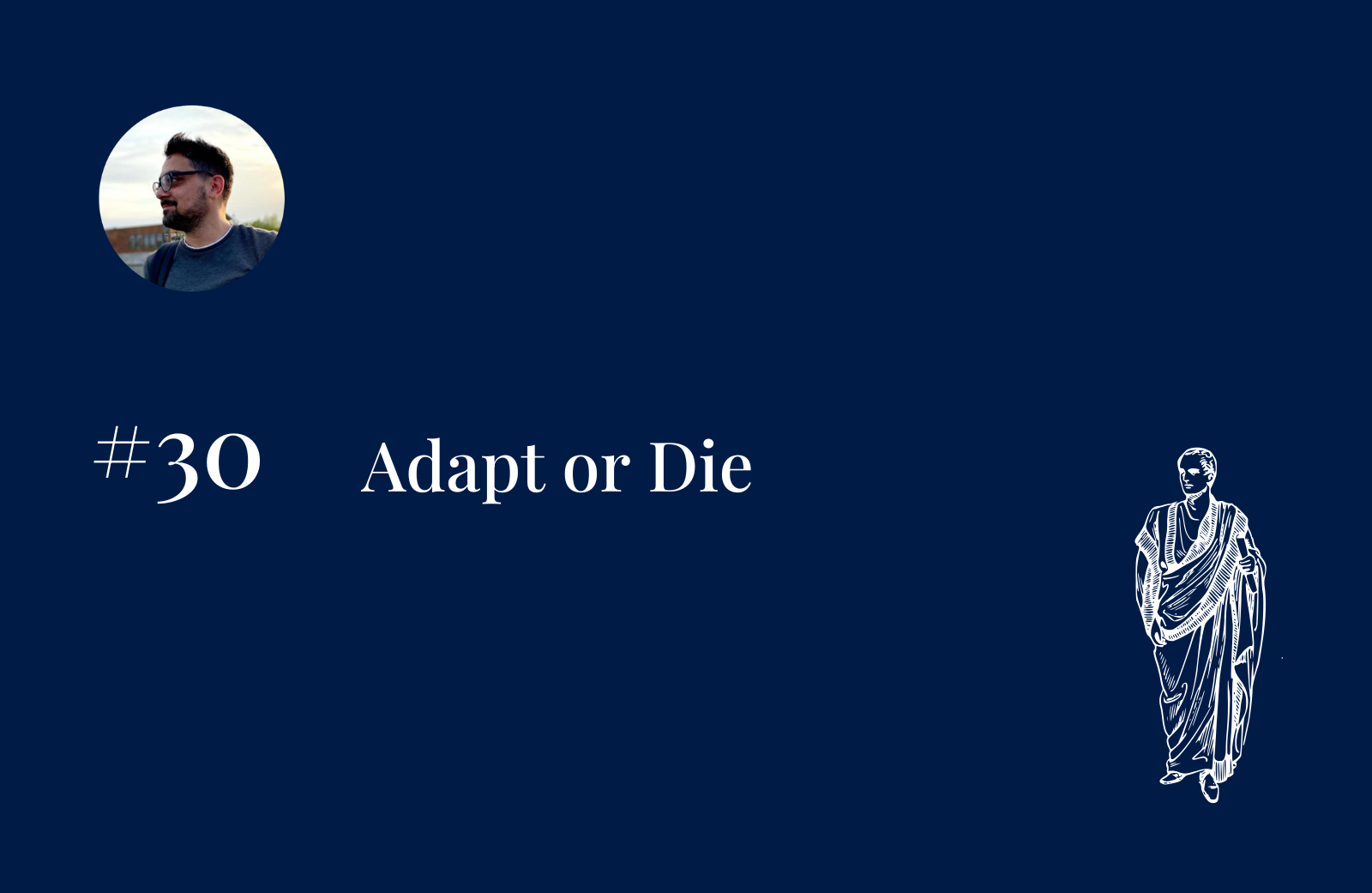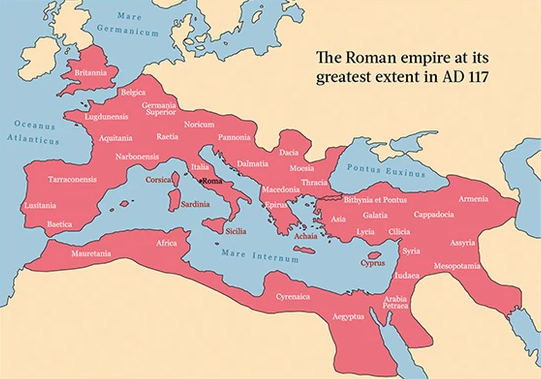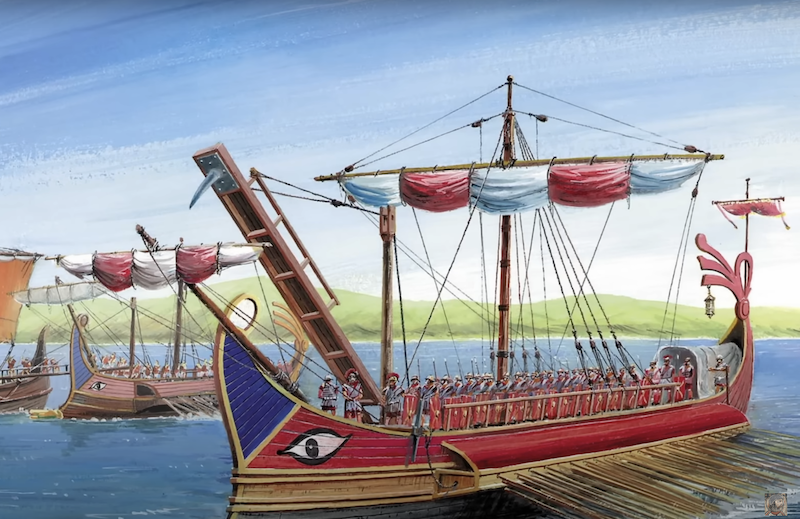
06 Nov Personal Brand – The Link Between the Roman Empire and Your Success
Nov 6, 2024
A long time ago, I came across the shortest definition of Intelligence.
Intelligence is the capacity to adapt to external influences
A Short Lesson in History
This reminds me of the Roman Empire. Initially a republic for approximately 482 years, it spanned from 509 BC to 27 BC. Following that, it became an empire for around 503 years, from 27 BC to AD 475. We can also include the Eastern Roman Empire, also known as the Byzantine Empire, which continued to exist until 1453 when Constantinople fell to the Ottoman Turks. The Byzantine Empire therefore lasted for approximately 977 years. In total, that equates to 1962 years of existence of the Roman Empire.

Did you know that the Romans were the first to use concrete as a building material on a large scale, revolutionising architectural design and construction capabilities? Also, the extensive road network built by the Romans was unrivaled at the time and paved the way for modern transportation infrastructure. The Romans engineered impressive aqueducts for water supply and sanitation, which influenced modern water management systems.
Without these three inventions, the world as we know it today wouldn’t exist. Not to mention that modern law is based on the Roman law system. Here are a few more of their inventions – central heating, public libraries, military tactics.
But how did they manage to accomplish all this? Well, certainly there were clever people who understood that investing in science and education is an advantage, but the Romans were also good at adapting.
Here’s an example. During the Punic Wars between Rome and Carthage, the Carthaginians were well-known for their superior abilities at sea due to their strong navy. The Romans, on the other hand, were more adept at land battles. To solve this issue, they added something called a “corvus” to their ships. A “corvus” is essentially a spiked bridge that could latch onto enemy ships, allowing Roman soldiers to storm across and engage in hand-to-hand combat.

In summary, the Romans were known for their ability to adapt and incorporate elements from the cultures they conquered, including technology, customs, religion, art, and languages. This evolutionary approach to cultural assimilation contributed significantly to their empire’s longevity.
They assimilated architectural styles, military tactics, and engineering technologies from the people they came across, such as the Etruscans and the Greeks.
The Romans were not so much “stealing” these technologies as they were building upon and enhancing existing knowledge. Part of the reason Rome was so successful is because of this ability to adapt and incorporate other societies’ strengths into their own culture.
Intelligence
My father is a tailor. His job is to measure you for a suit and make it for you. He learned this trade about 50 years ago and since then, he hasn’t had to return to college. A few decades later, he still has clients and uses the same knowledge. Of course, he occasionally learns new things, but the foundation of his skills remains the same.
The same principles used to apply to many areas of our lives. However, this approach is over.
Today’s world offers us a tremendous acceleration in the development of new technologies and a swift pace of events before our eyes.
As a software developer, I can affirm this – learning a new technology or skill every few months is a requirement, not an exception. If I stop learning, I fall behind. Someone else can easily replace me and, honestly, nobody will care. The market needs a “gear wheel” that can assemble a product in exchange for money. All those nice words about company principles and “we are a family” are dust in the wind, intended to make us happy and give us a feeling of worth. In reality, the only thing that matters is whether we’ve done our job. If we don’t, we’re out.
To survive in this high-paced world, we will see that in the future, we will no longer rely solely on the education we received in college. We will have to continually update our skills and knowledge. Let’s use a hypothetical number for the sake of this example: every 15 years, you’ll have to learn a new skill to enhance your current knowledge or to entirely change your field of work.
This will undoubtedly change the education system and the way we learn! This brings me to another point – governments and businesses that realise this soon enough and adapt quickly by transforming the education system will gain a superior advantage over others.
Remember the definition:
Intelligence is the capacity to adapt to external influences
To live in such a world and enjoy a decent life, you’ll have to learn to adapt and step out of your comfort zone quite frequently. Only the adaptive will survive!
If you’re curious about how fast things may change in the future, check out the book “The Singularity is Near” by Ray Kurzweil.

Personal Branding and Learning New Things
The last time I discussed personal branding – check The Importance of the Personal Brand – I stressed how working on your personal brand now may yield benefits later simply because in business, having a robust personal brand helps a lot.
However, your personal brand can’t exist if you don’t have anything to offer – and that’s where knowledge comes in. What essential knowledge do you possess that someone might be interested in paying for?
My point is that you should never stop learning new things. If you’re a software developer, learn a new programming language or technology. If you’re a trader, stay informed about market trends and deepen your knowledge by attending college. You get my point.
In my next three articles, I’m going to delve into different aspects of personal branding, but this time, the main takeaway is – Learn and never stop!
If necessary, grab a pen and make a plan. What would you like to do in the next 10 years that you’re certain would make you happy and provide a good income? Do you need to finish a course, graduate from a university, or perhaps read a few books to reach your desired goal? Develop a plan and stick to it.
This reminds me of an article I wrote months ago – How to Set Your Goals and Follow Them.
Remember, the Roman Empire existed for so long and our whole civilisation today is built on their knowledge because they never stopped learning and adapting.
